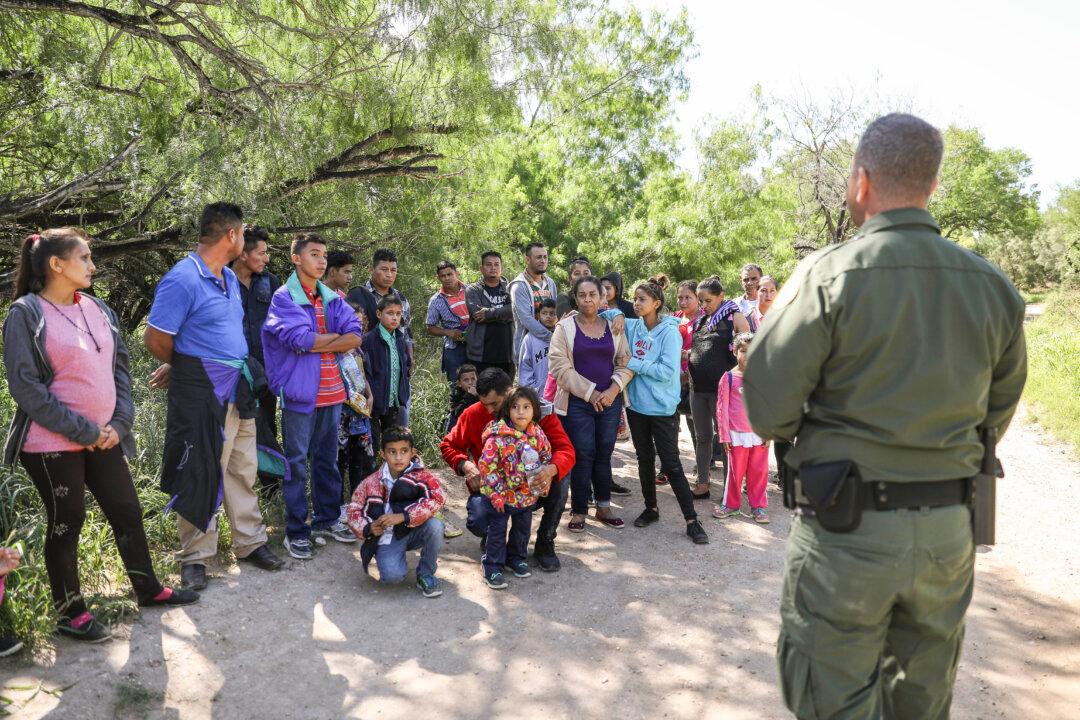WASHINGTON—Border agents in southeast Texas are so swamped, with more than 1,400 apprehensions a day and a detention capacity of 3,300, that they’re often forced to release families only hours after apprehension.
Additionally, legal constraints say children—even those with parents—cannot be detained by Border Patrol for more than 72 hours, during which time it’s impossible to obtain all criminal records for the adults.





